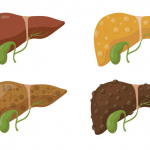Last week, Health Canada approved a new medication for weight management in Canada. This medication is actually a combination of two medications that have been around for years, called naltrexone and bupropion.
Bupropion is an antidepressant medication (called Wellbutrin), and is also used as a smoking cessation agent (called Zyban). It works by stimulating the fullness center of our brains, thereby suppressing appetite (specifically, it increases POMC activity in the hypothalamus by inhibiting reuptake of dopamine and norepinephrine).
Naltrexone is an opioid antagonist, which has been used for many years in the treatment of alcohol dependence and prevention of relapse to opioid dependence. Naltrexone works by preventing the fullness center of our brains from shutting itself off, further contributing to appetite suppression (specifically: POMC releases B endorphin that creates a negative feedback loop by binding to the mu opioid receptor on POMC neurons; naltrexone blocks this negative feedback loop).
Naltrexone and bupropion are also thought to have an effect on the mesolimbic reward center of our brains as well, which may result in decreased motivation for, desire for, and sense of reward/satisfaction from tasty foods.
The
weight loss at 1year with naltrexone/bupropion (trade name is Contrave) is about 4% of body weight compared to placebo, with people continuing to take the medication through a year (i.e. excluding those who dropped out of the study) losing 8.1% body weight in combination with lifestyle modification.
With an intensive weekly behavioural modification program, people who continued the medication and lifestyle program lost 11.5% weight after a year, again about 4% more than the behavioral modification group alone, who lost 7.3% body weight.
In
a study of people with type 2 diabetes, overall weight loss was 3.7% body weight (5.9% in those who completed the trial) vs 1.7% in the placebo group (2.2% in trial completers). In addition, diabetes control improved, with a 0.5% greater reduction in hemoglobin A1C (a diabetes report card test) than placebo.
The dose of naltrexone/bupropion for weight management is gradually escalated from the starting dose of one 8mg/90mg tablet once a day, to the full dose of two tablets twice per day, over
about 4 weeks.
The most common side effects of naltrexone/bupropion are nausea (in 32% of people vs 7% on placebo), constipation, dizziness, vomiting, and dry mouth.Gastrointestinal side effects tend to abate after about 4 weeks on treatment.
In terms of rare but serious side effects, there is a slightly increased risk of seizures with bupropion (0.1% of people in the weight loss studies vs 0% on placebo), so this medication should not be used in people at risk of seizures. It is advised not to take Contrave with a high fat meal, as this increases absorption of the medication to more than what was intended. Also, if doses are missed, they should not be taken later (just skip it completely).
Though it is an antidepression medication, bupropion can temporarily worsen depression or suicidal thoughts (there were no suicide attempts in any of the naltrexone/bupropion weight loss studies).
Contrave should not be used in people who are on opioid pain medications.There are also a number of other potential medication interactions that must be assessed before starting the medication.
Heart rate and blood pressure can increase slightly; what is usually seen is actually a very small decrease in blood pressure with the weight loss, but not as much blood pressure decrease
as one would usually expect with the amount of weight loss seen.
A cardiovascular safety trial was begun but halted about halfway through because interim data had been released, with the
concern being that this data release could impact the integrity of that trial. Naltrexone/bupropion appeared to have cardiovascular safety at the halfway mark, but this is not sufficient data to
answer the question – thus, another cardiovascular safety trial is being planned.
Note that this is not a comprehensive list of all considerations in prescribing naltrexone/bupropion – the full Canadian product monograph is available
here.
Naltrexone/bupropion was approved in USA in 2014 – interested readers can consult the American product monograph
here.
It is encouraging that we now have three medications in Canada that are approved for weight management.We know that obesity is very heterogeneous (different in causes, contributors, and health consequences from person to person), and thus, the best approach will be unique to each individual.We also know that the response to antiobesity medication differs from person to person.The general principle is that a 5% weight loss after 3 months on treatment is the best predictor of long term success with a particular medication (though in my opinion, maintaining weight after a significant dietary-induced weight loss with the help of medication is an important success as well).
Disclaimer: I receive honoraria as a continuing medical education speaker and consultant from the makers of naltrexone/bupropion (Valeant).
Follow me on twitter! @drsuepedersen












